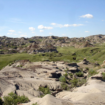Success certificate bridges Indigenous education gap
By Lethbridge Herald on September 5, 2023.
THEODORA MACLEOD
Local Journalism Initiative Reporter
The path to entering post-secondary education can come in many forms. While there is the linear (often seen as traditional) route of going to college or university immediately after graduating from high school, for many students that is not possible.
Fortunately, institutions, such as the University of Lethbridge, offer alternative programs to help students further their education while recognizing the challenges they may face in doing so. These challenges and roadblocks to education are especially prevalent in the Indigenous community.
To bridge the educational gaps many Indigenous students face when endeavouring to enter post-secondary, the University of Lethbridge has a long standing, but regularly evolving program that has recently be renamed the Indigenous Student Success Certificate. This certificate program provides, on average, 30 Indigenous students a year with a foundational academic university experience that embraces the Indigenous ways of knowing and learning.
Using a cohort model, the Indigenous Students Success program helps to create a community within the university that provides students with valuable support to aid them in the transition into the post-secondary environment. “Many Indigenous students really want to have a cohort environment and they want that first year experience,” says Dr. Michelle Hogue, associate professor and coordinator for the Indigenous Students Success certificate program.
“The first year of university is tough for anybody,” Hogue says. “So to have a cohort is really important. We provide a lot of support in the program, we have writing, we have cultural supports, we hwave counseling, we have elders, we have learning skills, we have many different things that any first-year student needs, but indigenous students may need to help them transition into mainstream university a little bit more, but also to keep the culture intact.”
During their time in the program, students complete two semesters of foundational courses, some of which can be counted towards as credits should they choose to enter a degree program in the future. Hogue says, in the second semester of the program, students can also complete elective courses at the university level.
Prior to July 2023, the program did not offer a certificate, however the recognition of completion was introduced to provide something concrete for those who pause their education or choose to not continue with university. As an increased number of Indigenous students – as compared to their non-Indigenous counterparts– do not complete the qualifications for a high school diploma, the certificate offers a way to increase their employability and access to other opportunities. It also saves students from having to upgrade their high school courses or complete the G.E.D.
Though the logistics of the certificate program are designed to improve the academic experiences and job prospects of those who complete it, there is an important cultural component that is embraced. “We don’t say put your culture down at the door. We want our students to be able to bring their culture along with them,” explains Dr. Hogue. She adds that Indigenous ways of knowing and learning embrace the connection between different areas of knowledge rather than isolating subjects as is often done in western education. That emphasis on interconnectivity is just one of many ways the courses incorporate cultural elements into their lessons.
Hogue says the focus on the interconnection of knowledge is something seen more and more in 21st century learning. “21st century thinking is reflective of Indigenous ways of knowing and learning.” She explains that approach also allows for critical thinking to be embraced. “I think that’s one of the things that Indigenous knowledge does is, it is about critical thinking and it’s about being able to relate interrelate what you know do what you need to know.”
In addition to cultural understanding and practices being integrated into the classroom, the program also has international partnerships that encourage students to connect with other Indigenous communities in places such as Mexico and Australia.
Hogue says these relationships allow students to expand their understanding of the world and of Indigeneity, while learning how their experiences relate to others internationally.
The Indigenous Student Success Certificate at the University of Lethbridge is just one example of how post-secondary is expanding beyond western traditions to bridge the education gap and integrate new ideas of learning into advanced education. It brings with it hope for Indigenous students seeking educational experiences, and for all students who can benefit from the ways of knowledge and learning presented by Indigenous culture.
14-13




